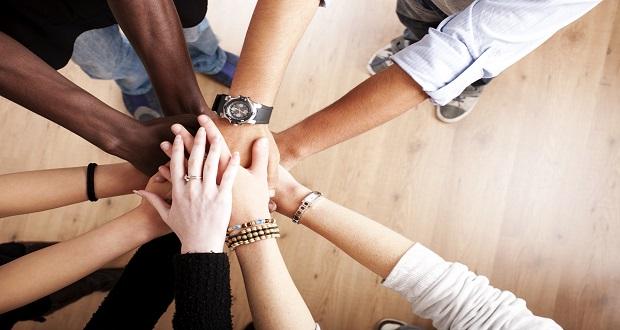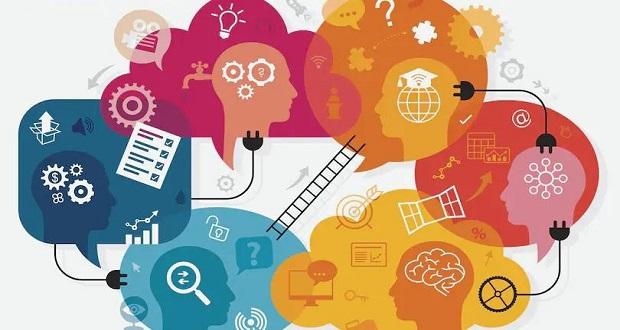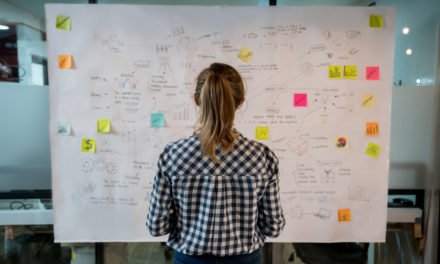I hadn’t used notecards in a long time. In college I used to use them to study for tests and for presentations. I have a stack of them left over from grad school. They have been sitting in a drawer with a weird collection of old pens, unsharpened pencils, paperclips, dried rubber bands and unused binder reinforcement dots. Out of all these forgotten supplies, I found an unexpected use for my note cards in equity and inclusion work, and I want to share it with you.
Throughout my career, my diversity office was less than four people, but my DEI practitioner community was much larger. We met as a community through networks and groups designed to help us get together and collaborate. I also have a team of DEI colleagues. Today, they work in different organizations, but at one time in my career, we worked side by side in the same office. We decided over the years to stay together, as a team. Our former boss called us the “Dream Team.”
If you are new to the DEI field, you are not alone. There is a wider community of DEI professionals who are also trying to figure out how to create DEI trainings, reverse decades of underrepresentation within their organizations, and engage employees’ bravery in exposing their cultural authenticity at work. If you search hard out there, you will find your Dream Team as well. The inspiration you receive from your team is vital to stay motivated in this work. Motivation is pivotal in DEI work, especially when things are difficult. My Dream Team realized this and used this to our advantage in a variety of ways.
There is not a prescribed method for solving the societal problems that are naturally intertwined into the workplace. Because a lot of this work is trial and error, it is exciting to be creative and innovative in solving for these problems. It is also exhausting. We exist in a society that wants numbers and dollars to solve social and systemic ‘isms,’ and that sometimes refuses to acknowledge pervasive problems. These dynamics make it particularly challenging to work in a field that attempts to remedy social ills.
We exist in a society that wants # and $ to solve social and systemic ‘isms,’ but refuses to acknowledge pervasive problems. This makes it challenging to work in a field that attempts to remedy social ills. Share on XMy DEI colleagues and I have experienced a wide range of emotions tied to this work. Before Covid-19, we met regularly for lunch. It was nice to have a group of friends from the field that had similar experiences in their workplace. Every time our small group met, we would cycle through a symphony of emotions. One of us was often excited and hopeful about a new idea that we were rolling out. One of us might be despondent, feeling like nothing mattered. And one of us had one foot out the door.
Our conversation would go something like this: The excited one would say, “I am so excited about this new initiative I put together and my leadership is on board!” The despondent one would say, “I am so excited for you! I wish I had that kind of support. I actually had to explain to a manager why it was not okay to [xyz], and they just didn’t get it. Did they really just say that to the Diversity Officer?!!” And the exasperated one would say, “I can’t do this anymore. I am so tired of everything. It’s exhausting, and nothing is ever going to change.” We were tired of the same issues coming up. We were excited about a new DEI prospect. We were tired of having to prove the worth of our positions. We were hopeful for change. We were tired of not receiving support and enthusiasm for our work. We were ready to dive in and work hard. Each time we met, it was as if we rotated our emotional roles.
For the rest of our lunch we would strategize, coach and build each other up. We would leave those lunches smiling and laughing. The support was amazing and motivational. After a few of these lunches, I was desperate to find a way to carry that support back with me to the office throughout the week. Then, I found a use for my notecards.
I started showing up to the lunches with notecards and asked everyone to write something positive on a card for each of us to take with us. I still have all my cards. I keep them on my desk. I have carried them with me for years. My colleagues have done the same. In moments where our work feels pointless or frustrating, these cards have brought me back. “Don’t forget how amazing you are. Keep your head up and don’t get discouraged!”
It is remarkable how a small piece of paper with a personal message can give you the confidence you need to make it through a day. It makes you feel less alone. It makes you feel a part of a team. We may not all sit in the same space, but we are all in this work together. We Inspire each other. We support each other. We coach and mentor each other. We do this month after month to slowly chip away at the societal ‘isms’ that manifest in our workspaces.
Now that we are all socially distant, it has made it harder to connect. We have resumed our meetings monthly over zoom, but I miss the note cards. This month, I am going to restart my note card project, mailing out my note cards with messages of support instead of exchanging them at the table. Imagine having a hard day at work, then finding a validating note in the mail instead of just bills. What a difference this could make, particularly when many of us are isolated and working from home!
This month I challenge you to a call for action: Go through that junk drawer, and find your note cards or even just scrap paper! Write down a few sentences for a DEI colleague you appreciate, and mail it. (Perhaps you want to include a pre-paid envelope and blank notecard for them to write you back!) This will not only be therapeutic for you, but also a nice surprise for your colleagues. These affirmations from within our community are validating and can help us through some really tough times.
This work is critical, for all of us. I found a small use for my notecards, and in addition to sharing it, I want to leave a note for you: Your work is important. It is responsible for helping our workplaces become more diverse, equitable and inclusive. We are all a part of a larger community of DEI practitioners who are trying to solve many of the same issues in our workplaces. In this moment, whether you feel on top of the world, or frustrated and tired, remember: you are not alone.
We are all a part of a larger community of DEI practitioners who are trying to solve many of the same issues in our workplaces. In this moment, whether you feel on top of the world, or frustrated and tired, remember: you are not… Share on X



















